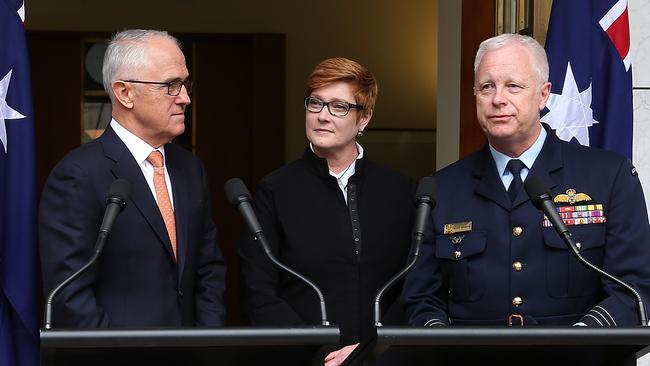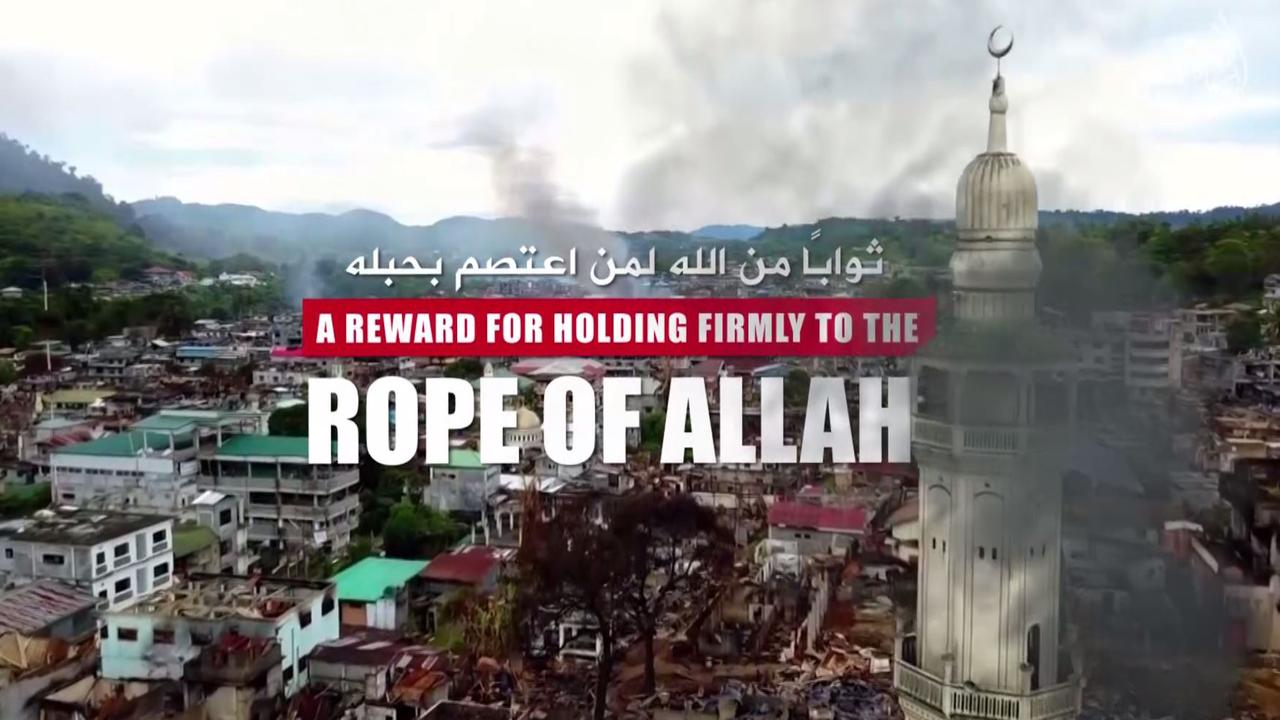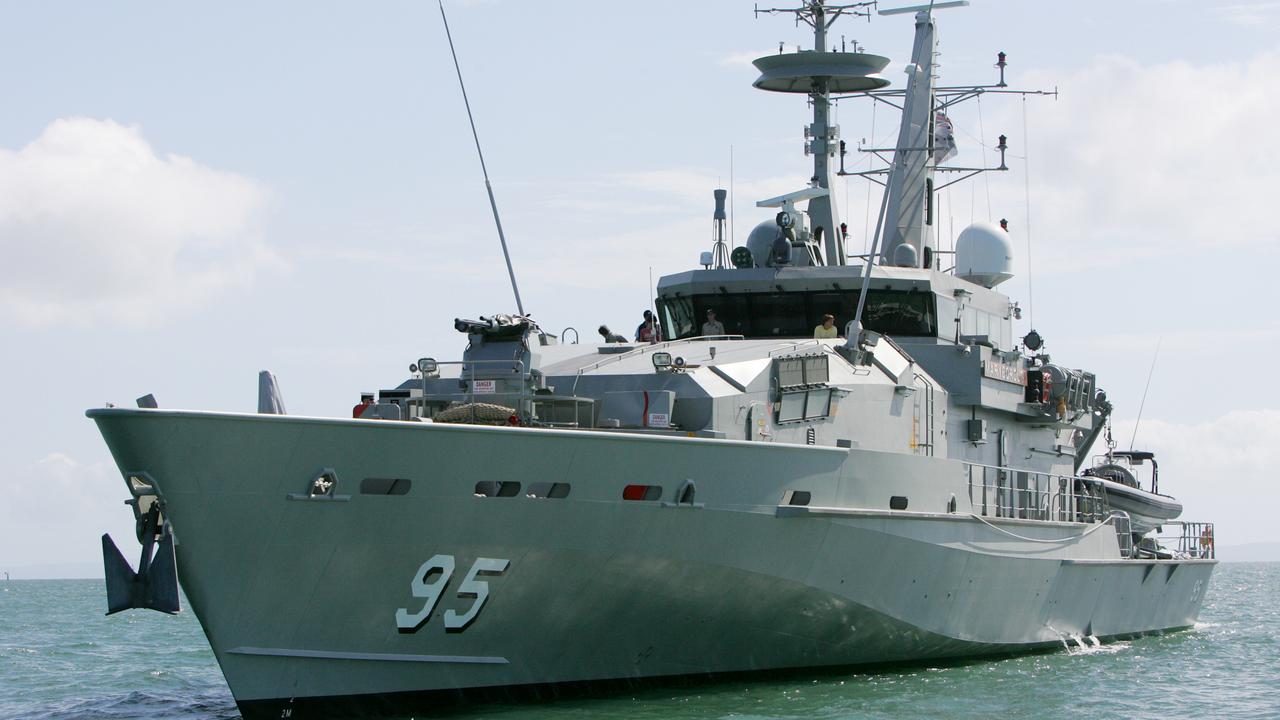SAS officers given lessons in ‘morality’
SAS officers are being given additional training in ethics and morality as the army braces itself for a potentially damning report.

SAS officers are being given additional training in ethics, morality and courage in leadership as the army braces itself for a potentially damning report expected to find that a small number of troops may have committed war crimes during the decade-long fight in Afghanistan.
With the Inspector-General of the Australian Defence Force due within months to hand down his report into alleged battlefield atrocities committed by Diggers, The Australian can reveal that the SAS Regiment has been quietly instituting a series of reforms ahead of the findings.
The changes to special forces training reflect a widely held view within the army that any alleged misconduct committed by Australian troops was in part the result of a failure of leadership, as well as the transgression of individual soldiers.
Many of the reforms are focused on strengthening operational leadership and regimental culture, while others are designed to help special operations officers make ethical decisions even under the most challenging conditions.
The changes are also aimed at breaking down the inter-unit rivalry within the special forces, which critics say contributed to a toxic culture across the entire command.
The Australian has been told the SAS began rolling out the reforms in 2015, when its then-commanding officer, Major General Jeff Sengelman, became aware of alleged misconduct on the part of some members. Eventually the reforms encompassed the whole special operations community.
General Sengelman’s concerns became so acute he notified Chief of the Defence Force Mark Binskin, who in turn asked the Inspector-General to launch a formal inquiry. General Sengelman declined to comment when contacted by The Australian.
The inquiry’s terms of reference are secret, but the basic brief is to investigate persistent rumours that some soldiers committed war crimes, such as battlefield executions.
It is due to report by the end of the year and the view within Defence is that at least some of the more serious allegations are likely to be true.
A Defence Department spokesman confirmed the reforms yesterday.
“The special operations community has been undergoing a self-initiated period of continuous change and development to improve a number of aspects of the special operations command,’’ the spokesman said. “For operational reasons, Defence does not comment on the training, tactics and procedures of the special operations command.’’
Sources with knowledge of the changes told The Australian that one of the most significant operational reforms had been to impose additional training requirements on special operations officers.
Traditionally SAS officers and troops did the same course. Now, SAS officers are required to complete additional training in ethics, morality and courage in leadership.
The relationship between officers and enlisted men within special forces is different to that in the rest of the army. Because special operations teams work in small units in highly dangerous environments, the relationship is more democratic, potentially giving enlisted men greater influence over decision-making.
The courses are overseen personally by the commanding officer and are aimed at ensuring officers show ethical leadership, even in the face of pressure from the troops.
Another change was to appoint a lieutenant colonel solely to run Perth’s Campbell Barracks, where SAS troops are billeted. Traditionally, the SAS commanding officer had control over both the troops and the barracks.
However, after concerns were raised that some troops just home from Afghanistan were ignoring army procedures, the army decided to appoint an officer responsible for base management and compliance.
Part of the problem was the unique nature of Campbell Barracks, which houses hundreds of troops, most of whom had done several rotations through Afghanistan.
Sources familiar with the situation said some SAS troops acted as though they were still in a war zone, for instance taking ammunition from the armoury without properly accounting for it.
The reform allowed the SAS commanding officer to focus on operational planning and counter-terrorism while the lieutenant colonel ran the base.
The special forces command has also begun effectively rebranding all officers with the rank of major or above to become “special operations officers’’, as opposed to individual unit officers.
The move was designed to eliminate the rivalry between SASR and 2 Commando Company, the two units that made up the Special Operations Task Group in Afghanistan.




